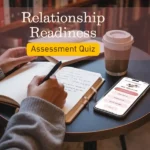Table of Contents
Introduction
Dating can feel like a daunting task, especially for beginners. The landscape of modern relationships has evolved, and with it, the ways in which we connect with others. The key to successful dating lies not just in finding someone to share time with but in building meaningful connections that foster genuine intimacy and love.
In this comprehensive guide, we will explore the foundational principles of dating. We will begin with self-awareness, as understanding yourself is crucial in forming relationships with others. Following this, we will look at practical communication skills, the process of finding a partner, and essential dating tips that can help you navigate the complexities of modern dating.
We will also delve into setting healthy boundaries, navigating the challenges that may arise, and embracing vulnerability as a strength rather than a weakness. By the end of this guide, you will be equipped with the knowledge and tools to approach dating with confidence and clarity. So, let’s embark on this journey together!
Self-Awareness and Understanding Yourself
Before diving into the dating world, it’s imperative to develop a solid understanding of yourself. Self-awareness involves introspection and identifying your values, needs, and desires in a relationship. Ask yourself:
-
- What are my core values?
-
- What qualities do I seek in a partner?
-
- What are my dealbreakers?
-
- What past experiences shape my perspective on dating?
Understanding your emotional landscape helps clarify what you are looking for and can prevent unhealthy relationship patterns.
Key Points
-
- Reflect on your past relationships to identify patterns.
-
- Consider writing a list of your values and priorities.
-
- Engage in self-care practices to boost your self-esteem.
-
- Be honest with yourself about your readiness for a relationship.
Expert Tips
Experts suggest maintaining a journal where you can articulate your thoughts and feelings about relationships. This practice fosters greater self-understanding and allows you to track your growth over time.
Real-World Example
Consider Alex, who took time off after a tough breakup to reassess his values and what he truly wanted in a partner. By spending time alone and reflecting, he entered the dating scene with a clearer understanding of what would make him happy, leading to a more fulfilling relationship.
Effective Communication
Communication is arguably the cornerstone of any successful relationship. It’s important to express your feelings, listen actively, and engage honestly. Here are some tips that can enhance your communication skills:
-
- Practice active listening: This means being fully present in conversations, avoiding interruptions, and showing genuine interest in your partner’s thoughts.
-
- Be open and honest: Share your feelings, thoughts, and expectations from the relationship. Honesty fosters trust.
-
- Avoid assumptions: Always seek clarification instead of jumping to conclusions about what your partner might be thinking.
Key Points
-
- Use “I” statements to express your feelings without blaming.
-
- Be mindful of your body language; it conveys a lot about your feelings.
-
- Encourage open dialogue by asking open-ended questions.
-
- Practice expressing gratitude and appreciation regularly.
Expert Tips
Expert communicators often suggest role-playing difficult conversations with a friend to practice how to approach sensitive subjects with potential partners.
Real-World Example
Samantha found herself facing recurring misunderstandings with her new partner. Realizing this, she initiated a weekly check-in where they could discuss feelings and expectations, which significantly improved their relationship.
Finding the Right Partner
Finding a partner involves exploring different avenues, such as online dating, social events, or mutual friends. Here’s how to optimize that search:
-
- Identify what environments feel comfortable for you.
-
- Use dating apps wisely; don’t just swipe aimlessly. Focus on profiles that resonate with your values.
-
- Leverage your social circles to meet potential partners organically.
Key Points
-
- Attend events related to your interests to meet like-minded people.
-
- Be open to introductions from friends; sometimes, love is closer than it appears.
-
- Stay positive and patient — finding the right match can take time.
-
- Don’t hesitate to try new activities that could lead to meeting new people.
Expert Tips
Experts recommend creating a dating profile that highlights not just what you are looking for, but also who you are. Authenticity attracts potential partners more than overly polished portrayals.
Real-World Example
John attended a cooking class, where he met someone who shared his passion for food. Their shared interests led to meaningful conversation and eventual romance.
Practical Dating Tips
Once you’ve met someone you’re interested in, keep the momentum by applying some practical dating tips:
-
- Choose engaging and enjoyable activities for dates — it can reduce jitters and create lasting memories.
-
- Keep the conversation lively; share stories, thoughts, and even playful challenges
-
- Be punctual and respectful of your date’s time, as it reflects your interest and consideration.
Key Points
-
- Plan dates that allow for conversation — avoid activities that are too distracting.
-
- Be yourself; authentic interactions create genuine connections.
-
- Maintain a balance of mystery and openness to keep your date engaged.
-
- Above all, have fun! The joy of dating is about exploring connections.
Expert Tips
Dating coaches suggest preparing a ‘date menu’ of activities that match various moods or occasions to keep things fresh and exciting.
Real-World Example
Emily and her date went to a trivia night, where they bonded over their knowledge of pop culture, leading to laughter and connection.
Setting Boundaries
It is essential to establish boundaries early in your dating life to promote mutual respect and understanding. Boundaries can encompass emotional limits, physical boundaries, and even time commitments. Here are some guidelines:
-
- Create clear boundaries about personal space, especially concerning physical intimacy.
-
- Communicate your boundaries effectively and respectfully; clarity prevents misunderstandings.
-
- Be receptive to your partner’s boundaries as well — this is a two-way street.
Key Points
-
- Reassess your boundaries as the relationship evolves.
-
- Recognize that it’s okay to say no — your comfort is crucial.
-
- Practice vulnerability while being mindful of your emotional needs.
-
- Encourage open dialogue about boundaries regularly.
Expert Tips
Experts recommend using boundary-setting phrases such as, “I feel comfortable when…” to express your needs without coming across harshly.
Real-World Example
During the early days of dating, Mia and her partner discussed their personal boundaries regarding communication frequency, which helped build trust and understanding.
Embracing Vulnerability
Being vulnerable is often perceived as a weakness, but it’s a vital aspect of genuine connection. Here’s how to embrace it:
-
- Acknowledge your fears and insecurities; sharing them can foster intimacy.
-
- Allow yourself to express emotions openly; it invites deeper conversations.
-
- Be willing to share personal stories and experiences as a way to build rapport.
Key Points
-
- Start small; share minor vulnerabilities before progressing to deeper topics.
-
- Practice gratitude for those who support you during vulnerable moments.
-
- Understand that true intimacy involves mutual vulnerability.
-
- Reflect on the positive outcomes of vulnerability in past relationships.
Expert Tips
Relationship experts encourage couples to establish a “vulnerability language” — specific ways to express feelings that make discussions easier and more productive.
Real-World Example
During a quiet moment, Sarah shared her childhood experiences, which led to a deeper understanding with her partner and paved the way for a more profound connection.
Frequently Asked Questions
What should I do if I’m nervous before a date?
It’s normal to feel nervous! Try deep breathing exercises or visualize positive outcomes. Focus on enjoying your time together rather than overwhelming yourself with ‘what ifs.’
How do I know if I’ve met the right person?
Trust your instincts. Signs of a good match include feeling comfortable being yourself, shared values, and mutual respect. It’s important to allow relationships to develop naturally.
What if I’m still healing from a breakup?
Taking time for healing is essential. Ensure you’ve processed your feelings before entering the dating scene again. When you’re ready, you’ll engage in dating more authentically.
How can I keep the spark alive in a long-term relationship?
Continue to explore new activities together, communicate openly about your desires, and regularly check in with each other. Love is a continuous journey of growth and discovery.
What are some red flags to watch for when dating?
Watch for controlling behavior, lack of respect for your boundaries, inconsistent communication, or excessive jealousy. Trust your gut; these behaviors may indicate deeper issues.
Conclusion
Dating can be both thrilling and challenging, but by focusing on key principles such as self-awareness, effective communication, and vulnerability, you can foster meaningful connections. Remember that each experience, regardless of the outcome, contributes to your personal growth and understanding of relationships.
Embrace every moment, learn from your encounters, and keep an open heart as you navigate the world of dating. The connections you make, the relationships you nurture, and the lessons you learn will not only contribute to your romantic life but to your overall sense of self and community.
As you move forward, hold onto the belief that authentic relationships are built on trust, respect, and mutual understanding. Your journey into dating is just beginning — enjoy the ride!














